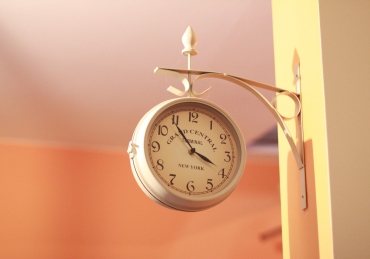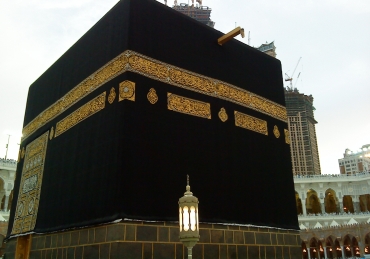Covid-19: Eid Ṣalāh during lockdown
Question
In light of the UK Government’s announcement yesterday (Sunday 10 May 2020) and the guidelines published today, please can you provide advice in relation to Eid Ṣalāh.
(Click here to read about performing Eid Salah in the garden. Click here to read about the basis of performing Eid Salah at home. For other Q&As & articles regarding Covid-19, click here)
بسم الله الرحمن الرحیم
Answer
The Government has decided to continue the lockdown with some restrictions partially relaxed. It is imperative that people continue to comply with the lockdown measures. In light of this, the guidance for Eid Ṣalāh for Muslims in the UK is as follows:
Eid Ṣalāh in the Masjid
- As the Government has confirmed that religious places are to remain closed, Eid Ṣalāh will not be organised in the Masjids for the general public.
- Key workers who are currently accessing the Masjid legally should perform Eid Ṣalāh in the Masjid, if possible, whilst complying with all the necessary precautions.
- The minimum number of participants for the validity of Eid Ṣalāh in the ḥanafī school is four mature (bāligh) males including the Imam, similar to Jumuʿah Ṣalāh. Therefore, if four key workers are not present, Eid Ṣalāh will not take place.
Eid Ṣalāh at home and other settings
- If four adult males are lawfully present in a home or workplace or elsewhere, they can perform Eid Ṣalāh whilst taking all the necessary precautions. In the home setting, the females and children from the same household can also participate. The Ṣalāh can also be performed in the garden. It is, however, imperative to continue to comply with the lockdown measures.
- The method of performing Eid Ṣalāh is outlined at the end of these guidelines.
What if Eid Ṣalāh is not performed?
- Although Eid Ṣalāh is wājib (necessary) under normal circumstances, individuals at home who are unable to perform Eid Ṣalāh or decide not to are excused due to the lockdown. They will, Inshāʾ Allah, be rewarded based on their intention and actions of previous years.
- Individuals who do not perform Eid Ṣalāh can perform two or four rakʿat nafl Ṣalāh, as mentioned by Imam Muḥammad ibn al-Ḥasan al-Shaybānī (d. 189/805) in al-Aṣl (1:320). The companion ʿAbdullāh ibn Masʿūd (d. 32/653, may Allah be pleased with him) said, “Whoever misses the Eid prayer should perform four rakʿat” (Muṣannaf ʿAbd al-Razzāq, 5713; Muṣannaf Ibn Abī Shaybah, 5800; the narration is ṣaḥīḥ, Fatḥ al-Bārī, 2:475).
- Performing two or four rakʿat is optional and a nafl Ṣalāh. Thus, it will be performed individually without any extra takbīrs, as it is not Eid Ṣalāh nor its Qaḍāʾ. Accordingly, there will be no Khuṭbah (sermon) thereafter.
The aforementioned ruling takes into account the challenges posed by the lockdown and restrictions on gatherings, the unique nature of Eid Ṣalāh, its significance, the absence of a replacement such as Ẓuhr for Jumuʿah Ṣalāh, along with some narrations from the pious predecessors (Muṣannaf ʿAbd al-Razzāq, 5855, 5716; al-Sunan al-Kubrā, 6237; Maʿānī al-Āthār, 7289; Muṣannaf Ibn Abī Shaybah, 2:4).
Everyone is requested to maintain respect for the various positions of scholars in this regard, and supplicate to Allah Almighty to protect us all and remove this calamity, so we can perform Ṣalāh in the Masjids as soon as possible.
General advice
- Ṣadaqat al-Fiṭr should be donated in advance of Eid day via a reputable charity so that it reaches the poor by Eid day. The Prophet ﷺ prescribed it as purification of the fasting from idle talk and obscenities and also as food for the poor (Sunan Abī Dāwūd, 1609).
- Eid is a great blessing of Allah Almighty. It is therefore important to adopt the Sunnah practices of Eid even if one does not perform Eid Ṣalāh, expressing his gratitude to Allah Almighty and marking the occasion of happiness and joy. Some of the etiquettes of Eid that should be adopted during the lockdown include:
- Performing Fajr Ṣalāh in congregation at home.
- Undertaking Ghusl (bath) before Eid Ṣalāh (or the Nafl Ṣalāh) and using the Miswak.
- Applying perfume.
- Wearing the best clothes available, it is not necessary to go shopping to purchase new clothes.
- Eating dates or something sweet before Eid Ṣalāh (or the Nafl Ṣalāh).
- Reciting Takbīr in abundance.
- Congratulating others in person and over the phone by saying تَقَبَّلَّ اللهُ مِنَّا وَمِنْكَ (may Allah accept [the worship] from us and you) (al-Tārīkh al-Kabīr, 1:116; al-Thiqāt, 9:90; al-Duʿāʾ, p.288; al-Sunan al-Kubrā, 3:446).
- Donating charity and keeping the poor and vulnerable in mind.
Eid Ṣalāh method
This section is for those who perform Eid Ṣalāh and are unfamiliar with its method.
- Eid Ṣalāh can be performed from shortly after sunrise until midday.
- There is no Adhān or Iqāmah for Eid Ṣalāh.
- Two Rakʿat will be performed with loud recitation similar to Fajr Ṣalāh. The Khuṭbah (sermon) will be after Ṣalāh.
- The Ṣalāh contains six extra takbīrs, three before the recitation in the first Rakʿat and three after the recitation in the second Rakʿat.
- Khuṭbah is not a prerequisite for the validity of Eid Ṣalāh. However, it is masnūn and therefore every attempt should be made to deliver the Khūtbah even if it is brief. If for some reason, the Khūṭbah is not delivered, this will be makrūh (disliked), however, the Eid Ṣalāh will be valid.
- The sequence for Eid Ṣalāh is as follows:
- Say Takbīr Taḥrīmah (Allāhu Akbar), fold the hands and then read Thanā in the usual manner.
- Say Takbīr (Allāhu Akbar) and drop your hands down to the side, as they are in qawmah after rukūʿ.
- Say Takbīr (Allāhu Akbar) and drop your hands down to the side.
- Say Takbīr (Allāhu Akbar) and fold the hands.
- Recite Sūrah Fātiḥah and a Sūrah (preferably Sūrah al-Aʿlā) (Only for the Imam, those behind will listen)
- Perform rukūʿ, qawmah, sajdah as usual and stand up for the second Rakʿat.
- Recite Sūrah Fātiḥah and a Sūrah (preferably Sūrah al-Gāshiyah) (Only for the Imam, those behind will listen)
- Say Takbīr (Allāhu Akbar) and drop your hands down to the side.
- Say Takbīr (Allāhu Akbar) and drop your hands down to the side.
- Say Takbīr (Allāhu Akbar) and drop your hands down to the side.
- Say Takbīr (Allāhu Akbar) and go into rukūʿ.
- Complete the remainder of the Ṣalāh in the usual manner.
- After Ṣalāh, deliver both parts of the Khuṭbah in Arabic in a standing position. The template on this link can be used.
Allah knows best
Yusuf Shabbir
20 Ramadan 1441 / 13 May 2020
The aforementioned guidelines have been endorsed by the following scholars:
- Mufti Shabbir Ahmad (Blackburn)
- Mufti Umar Farooq (London)
- Mufti Muhammad Tahir (Blackburn)
- Mufti Yusuf Sacha (Batley)
- Shaykh al-Ḥadīth Mawlānā Mohammad Ayub Bande Ilahi (Leicester, Wifaqul Ulama)
- Mufti Ibrahim Raja (Blackburn)
- Qari Mohammad Ismail Rashid (Chaplain, University of Sheffield and Lead Imam, Birmingham Central Mosque, Jamiat Ulama-e-Britain)
- Maulana Marghoob Ahmed Lajpuri (Dewsbury)
- Mufti Shahbaz Ahmed (Edinburgh)
- Mufti Zakaria Akudi (Madinah Masjid, Batley, Wifaqul Ulama)
- Mufti Muhammad Saleh (Blackburn)
- Mufti Siraj Ahmad (Blackburn)
- Mufti Muhammad Ali Falahi (Blackburn)
- Mufti Abu Sharaheel Abubakr Karolia BSc QTS (Batley)
- Mufti Nabiil Atchia (Glasgow)
- Shaykh Yunus Dudhwala (Head of Chaplaincy & Bereavement Services, Barts Health NHS Trust, London)
- Qari Muhammed Shoyaib Nurgat (Imam, Masjid Umar Walthamstow, London, Wifaqul Ulama)
- Imam Fazal Hassan (Chaplain, East Lancashire NHS Trust)
- Mufti Javid Pathan (Preston)
- Shaykh Ebrahim Noor BSc (Islamic Academy of Coventry)
- Members of the Waltham Forest Ulama (WFU)







